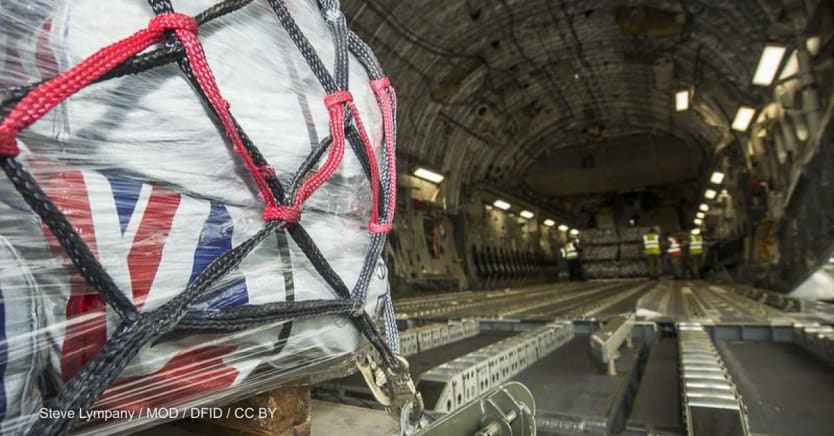
A damning collection of evidence about the U.K. government’s handling of recent aid cuts has been released by politicians, detailing an approach by the Foreign, Commonwealth & Development Office that one organization likened to a “car crash” and disclosing previously unknown program closures in priority areas.
Members of Parliament who belong to the International Development Committee, which monitors U.K. development policy, released dozens of statements detailing the experiences of NGOs, scientists, academics, and other experts with FCDO while the department set about canceling and cutting development and humanitarian programs.
IDC Chair Sarah Champion, a Labour MP, told Devex the tranche of evidence sent to the committee for its inquiry into the future of U.K. aid was the largest it had ever received.
The statements provide a rare, detailed, and often scathing insight into the breadth of the funding cuts — affecting projects ranging from reducing plastic pollution in the Galápagos Islands to helping people afflicted with leprosy in Mozambique — and how FCDO implemented the U.K. government’s decision to lower its aid spending to 0.5% from 0.7% of national income.
Tracking the UK’s controversial aid cuts
Keep up with the effects of the U.K. aid cuts via our regularly updated tracker.
“The FCDO’s approach to the changes has been mismanaged,” said a statement by Plan International UK. “It appears to have been rushed, with very little consideration or assessment of what impact they will have on programme participants, let alone the UK’s reputation and credibility with partners – whether other national governments, implementing partners or local civil society. A ‘car crash’ or a ‘complete mess’ are accepted descriptors used by all involved.”
Plan said there was “no real consultation with external partners at any level” and “a very top-down decision-making approach within the FCDO itself.” The statement added: “The approach, including lack of planning, poor communication and last-minute decisions is also breaking down trust with communities. Staff have highlighted that the FCDO’s handling of aid reductions is creating a climate of cynicism about development donors in the countries they are working in.”
A submission by Save the Children UK said the NGO was “disappointed by the FCDO’s handling of communication around the cuts.” It said there had “consistently been a lack of consultation and engagement with INGOs” and expressed concern about the absence of impact assessments ahead of decisions. The group said FCDO’s approach has the potential to “waste taxpayers’ money.” “Our experiences are mirrored by implementing partners across the board,” the statement added.
ActionAid UK echoed this theme, saying in its submission that information around cuts was “communicated by FCDO in a piecemeal manner, at very short notice – sometimes less than 24 hours,” adding that “Decisions were communicated with little clarity, no transparency on budget allocations and little or no time for forward planning, leaving many projects and grassroots organisations with a great sense of uncertainty, scrambling to rebuild vital programmes on a fraction of the initially agreed funding.”
Despite the United Kingdom’s roles as a self-described climate leader and host of the 2021 United Nations Climate Change Conference, aid funding to the “largest climate resilience building project in Malawi” was canceled, according to implementing NGO United Purpose — despite a new aid-funded trade program in the country going ahead.
“The approach, including lack of planning, poor communication and last-minute decisions is also breaking down trust with communities.”
— A statement by Plan International UKThe United Nations Population Fund, United Nations Development Programme, UNICEF, and UN Women revealed in a submission that each agency had seen its core U.K. government aid funding cut by 60%. There were further cuts to additional funding, including programs working on child labor and malnutrition, the statement added.
A submission from the Microbiology Society said the aid cuts were "extremely damaging" and would "have a negative impact upon the silent pandemic of antimicrobial resistance” — despite the U.K. government having identified this as a key threat to public health. The cuts also directly contradicted the government’s ambition to become a “science superpower,” the statement added.
The Academy of Medical Sciences said the aid cuts have “disproportionately affected research and innovation, with UKRI [UK Research and Innovation] seeing a £120 million [$170 million] gap between funding and existing commitments in 2021-22,” adding that “The funding shortfall affects over 800 live research projects in the UK and developing countries, threatening the UK’s credibility and reputation as partner of choice.”
FCDO did not immediately respond to a request for comment.








